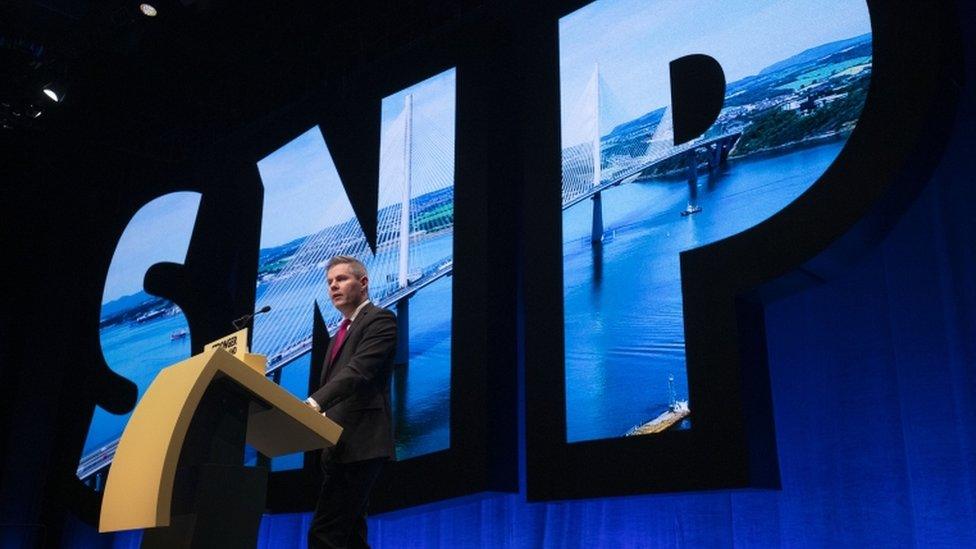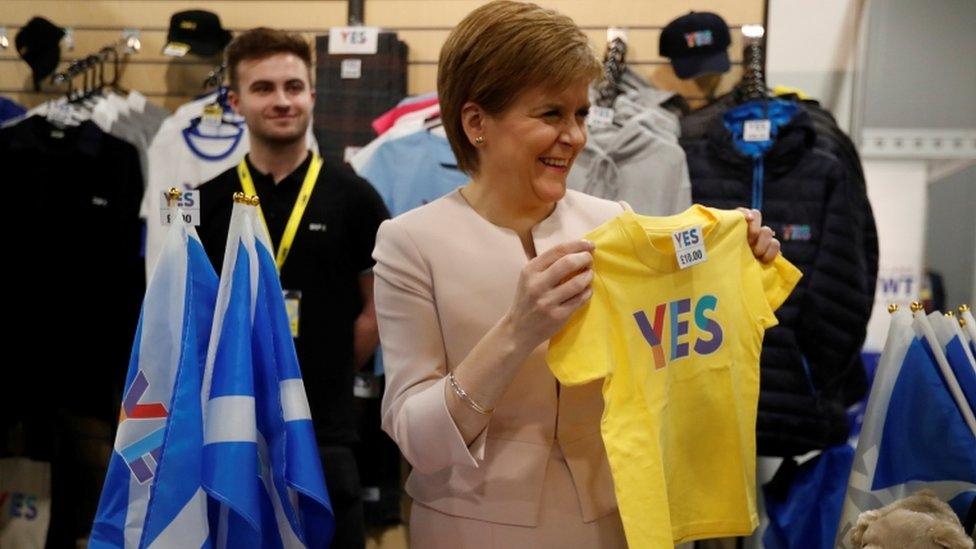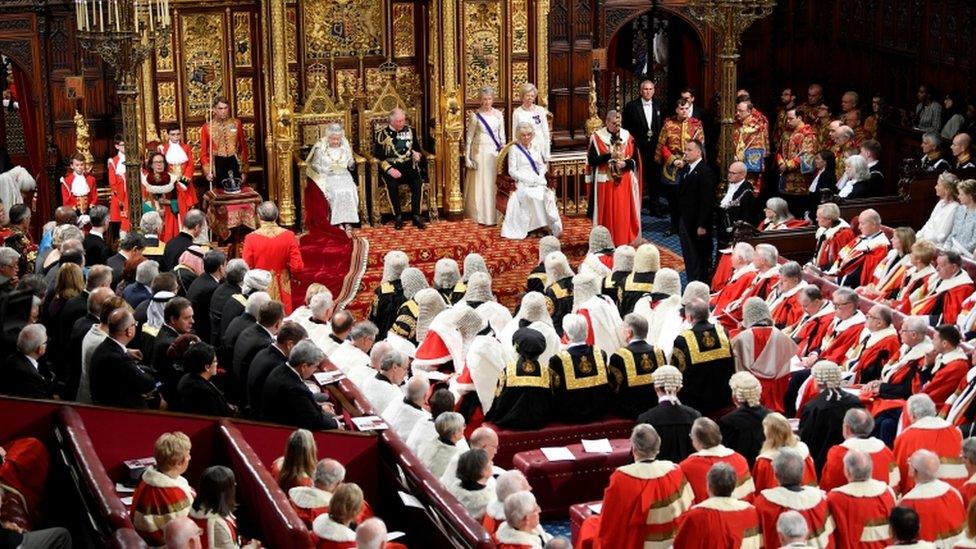Scottish independence: SNP 'winning the economic argument'
- Published
- comments

Scotland's finance secretary has used his speech to the SNP conference to claim the party is winning the argument on Scotland's economic future.
Derek Mackay said the country can "more than afford" to be independent.
He also argued that staying part of the UK leaves Scotland "subject to the whim of Westminster turmoil".
And Mr Mackay told delegates that convincing people they will be better off after independence is key to winning them over.
Nicola Sturgeon, the SNP leader and Scottish first minister, says she wants to hold a second independence referendum next year, but the UK government has repeatedly said it will not give the consent Ms Sturgeon says is needed to ensure any vote is legal.
She is expected to formally ask the prime minister for consent before the end of the year - with the Scottish government's Brexit secretary, Mike Russell, not ruling out the possibility of legal action being taken if it is not granted.
Mr Mackay told the conference in Aberdeen that the party's unionist opponents are "panicking" because the "case for the Union has been "completely demolished over the last few years" due to Brexit and austerity.
He added: "We have always known that convincing people that they will be better off in an independent Scotland is key to winning their support and opinion polls clearly show that confidence in an independent Scotland's economy is growing.
"The message is ringing through loud and clear - Scotland cannot afford the Union. Our economy, our public services and our people cannot afford to be subject to the whim of Westminster turmoil for years and years.
"Scotland cannot afford the Union, but it can more than afford to be independent."

Ms Sturgeon will bring the SNP conference to a close with her keynote speech on Wednesday afternoon.
Scottish government statistics published in August showed that Scotland spent £12.6bn more on public services than it raised in taxes over the previous year.
This was lower than the £13.8bn deficit estimated for the previous year, and was equivalent to 7% of the country's GDP. The UK as a whole has a deficit of £23.5bn - or 1.1% of its GDP.
Pro-UK parties argue that the Scottish deficit figures show there would be "black hole" at the centre of an independent Scotland's finances.

The Queen stressed the importance of the Union during the state opening of Parliament
The second day of the three-day SNP conference is being held as Prime Minister Boris Johnson unveiled his new legislative agenda in the Queen's Speech, which the UK government has described as an ambitious programme for a post-Brexit Britain.
In her speech, which is written by the government, the Queen said: "The integrity and prosperity of the Union that binds the four nations of the UK is of the utmost importance to my government.
"My ministers will bring forward measures to support citizens across all the nations of the UK."
With the Conservatives having no majority in the Commons, there is a chance that the Queen's Speech could be rejected by Parliament, which would trigger renewed calls for a general election.
Labour has described the exercise - which comes just a fortnight before the UK is due to leave the EU on 31 October - as a political "stunt".
Speaking to the BBC's Today programme on Monday morning, Ms Sturgeon said she is unsure if Mr Johnson's government will still be in office to deliver its proposed Budget on 6 November.
She said: "On one hand, as first minister, I want there to be a Budget because we need that in order to know what the spending envelope of the Scottish government is for the next year.
"But, I have to say, I think it's another example of this government making things up as they go along. I'm not sure they will still be in office on 6 November.
"It doesn't appear to be at all certain we will leave the EU on 31 October. It's still a big risk of leaving with no deal, but I certainly hope that we will manage to see an extension secured to the Article 50 process."
Ms Sturgeon told the BBC on Sunday that Labour leader Jeremy Corbyn should not "bother picking up the phone to me" to ask for her party's support to help him form a government he is willing to agree to an independence referendum.